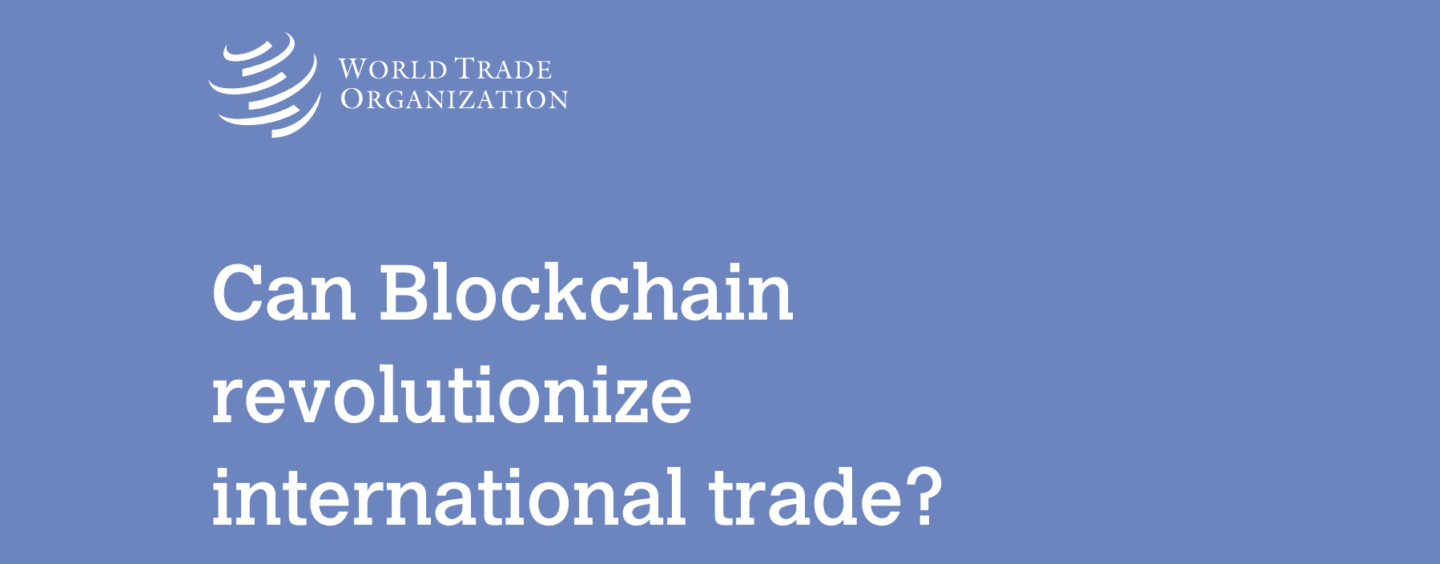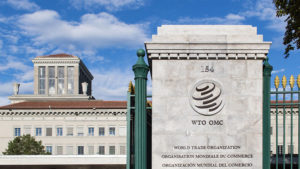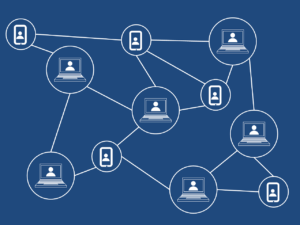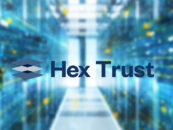
WTO: Blockchain Holds Great Opportunities for International Trade But Challenges Remain
by Fintech News Hong Kong December 11, 2018Blockchain is perceived by many as the next big game-changer in trade, promising to enhance the efficiency of processes and help trade move closer to becoming paperless. However, the challenges to overcome are equivalent to the opportunities offered by the technology, according to a new report by the World Trade Organization (WTO).

Image: Shipping containers, PxHere
In a report titled Can Blockchain Revolutionize International Trade?, the WTO analyzes the relevance of blockchain technology for international trade and discusses the potential of blockchain for reducing costs and enhancing supply chain transparency as well as the opportunities to provide for small-scale producers and companies.
“Blockchain, which allows digital records and information to be shared in a secure, transparent and immutable manner without relying on a single trusted third party, offers interesting promises,” the organization explains.
“[Blockchain] could have a significant impact on the way trade operations are conducted, from financial to physical cross-border trade transactions, reducing processing, verification, tracking, coordination and transport costs by streamlining and digitalizing processes that involve multiple stakeholders and have, until now, remained highly dependent on paper. It could reduce fraud, improve the administration of intellectual property (IP) rights, enhance traceability and trust in value chains, and open new opportunities for small companies.
“By breaking the various silos that currently exist between the many parties involved in cross-border trade transactions, blockchain could bring trade globalization to another level.”
Opportunities and challenges

Image: World Trade Organization, WTO.org
According to the WTO, the characteristics of blockchain technology make it a potentially interesting tool to help implement the WTO Trade Facilitation Agreement (TFA), which focuses on facilitation efforts to reduce the costs and time needed to export and import goods, as well as to facilitate business-to-government (B2G) and government-to-government (G2G) processes at the national level.
Another area that could be impacted by blockchain is insurance. Using smart contracts to automate processes could help reduce administrative procedures and costs, and facilitate the handling claims, and management of multinational insurance contracts.
Blockchain technology can also be used to improve the administration and enforcement of intellectual IP rights across multiple jurisdictions, enhance government procurement processes, and promote transparency and traceability of supply chains.
Finally, by facilitating access to trade finance, facilitating procedures, and reducing trade costs, blockchain can help lower barriers to entry, making it easier for micro, small and medium-sized enterprises (MSMEs) and producers to participate in international trade.
While it is difficult to estimate the impact of blockchain on costs, the report says this could range from 15 to 30% of total costs in the financial sector and the shipping industry. According to the World Economic Forum, the removal of barriers due to blockchain could result in more than US$ 1 trillion of new trade in the next decade.
But in order for the technology to work to its full potential, several key challenges must be addressed, including technical issues such as scalability, security, interoperability and legal issues.
The report notes that numerous platforms are currently being developed that use different technical interfaces and algorithms and that do not “talk to each other.” Additionally, the wide-scale deployment of blockchain requires a conducive regulatory framework that recognizes the legal validity of blockchain transactions, clarifies applicable law and liabilities, and regulates the way data can be accessed and used.
Predictions

Image: Blockchain illustration, Pixabay
The WTO predicts that while it’s unlikely that distributed ledger technology (DLT) platforms will replace our current systems, these platforms will likely complement existing infrastructures.
It notes that the technology is still evolving with new “superior” DLTs already emerging that are quicker, more secure and less energy-intensive than the original blockchain.
Given the potential of blockchain, the WTO advises companies, civil society organizations, software developers, academics, governments and intergovernmental organizations to work hand-in-hand to assess the practical and legal implications of the technology and to develop collective solutions to existing challenges.
“This is particularly true when it comes to international trade. Blockchain could make international trade smarter, but smart trade requires smart standardization – and smart standardization can only happen through cooperation,” the report says. “If we succeed in creating an ecosystem conducive to the wider development of blockchain, international trade could well look radically different in 10 to 15 years.”








